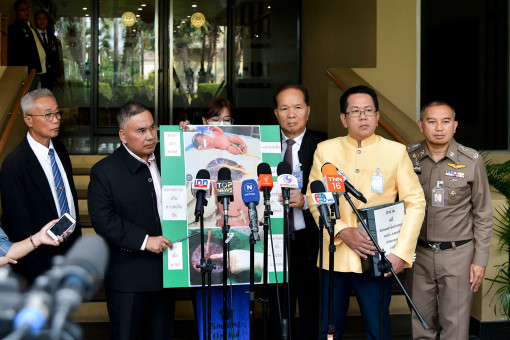Lawyer sounds alarm about trafficking in placentas and umbilical cords as well as other body parts

Authorities will take action against illegal stem cell production and trafficking in infant placentas, umbilical cords and other human body parts, an adviser to the prime minister said on Friday.
Jirayu Houngsab made the comment after receiving information from lawyer Songkan Atchariyasap about networks that traffic human parts.
Mr Jirayu said this was a relatively new and shocking issue for the country to contend with, and the government has been working with the police to combat it.
Mr Songkan, who filed the complaint on Thursday, said he was contacted earlier by a petitioner who was an employee at a stem cell manufacturing company.
The petitioner claimed the company was generating stem cells from placentas and umbilical cords without the owners’ consent.
The petitioner said he had been working with the company for eight years without being aware of the legal implications.
After he learned that the process required legal authorisation, the petitioner said that he immediately resigned from the job.
The former employee said he had evidence of the company’s operations but did not know where it obtained its materials from.
According to Mr Songkan, illegal stem cell companies normally generate stem cells from the placentas and umbilical cords of infants with O-type blood.
As mothers usually do not claim ownership of those parts, some nurses were reported to have smuggled them out of hospitals for sale for between 5,000 and 10,000 baht apiece, Mr Songkan said.
He claimed that some employees at public hospitals in Bangkok were also involved with the illegal organ-selling networks.

